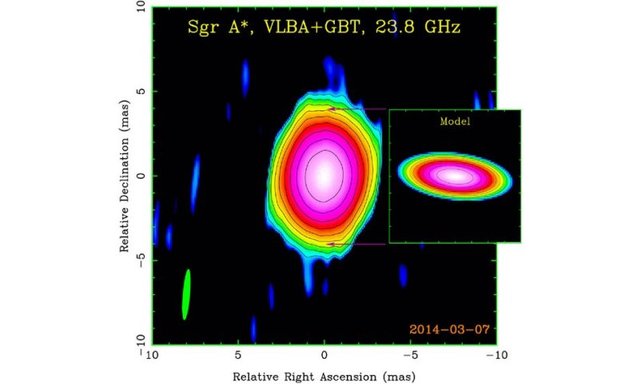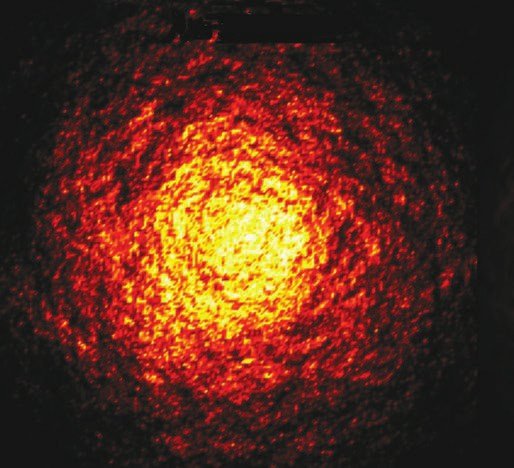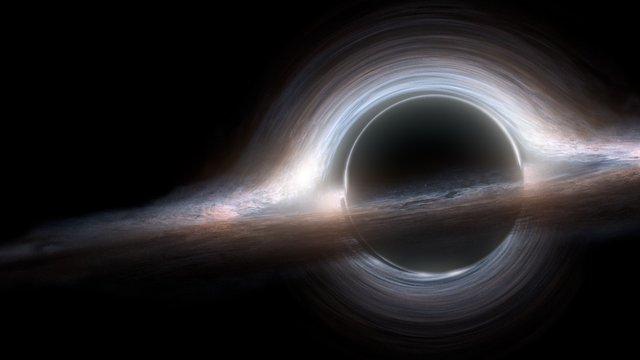“Do Black Holes Exist?” and “Was Einstein Right?”. Such titles were very popular not only in mass media, but in scientific literature. Even today, we can definitely find such titles in the most prestigious scientific magazines. This happens because we still have no solid proof that black holes exist. We do not have empirical proof made through observation.
Theoretical hypothesis about black holes was suggested by the very Theory of Relativity created by Einstein does not satisfy physicists. Note that even the author of the mentioned theory was not sure about black holes himself. The 100-year anniversary of General Relativity celebrated just one year ago is a great opportunity to remind the publicity that the observation of black holes has potential. Will we see them anytime soon? Maybe, in the nearest future!
As of right now, our studies show that in centers of galaxies one can find supermassive black holes. Such an object of 4 million sun masses is situated in the middle of our totally ordinary galaxy Milky Way. We are separated from the object by an enormously large cloud made of gas and star dust where stars reside.

Hybrid image of the center of our Galaxy (Sgr A* object), VLBA+GBT / Gwinn et al. (ApJL, 2014)
The center of our galaxy is an observation subject for only two scientific groups in the world. One works in The W.M. Keck observatory operating 10-meter telescopes in Hawaii. Another one works in the European Southern Observatory in Chile working with the Very Large Telescope Interferometer (VLTI) that consists of 4 8-meter optical telescopes. Both groups independently from one another received proofs that the supermassive black hole in the center of the Milky Way indeed exists. For this discovery leaders of both groups – Andrea M. Ghez and Reinhard Genzel – were awarded with Crafoord Prize worth half of a Nobel Prize. The Crafoord Prize is also awarded by The Royal Swedish Academy of Sciences. By the way, this year prize was also awarded to astronomers Roy Kerr and Roger Blandford for studying spinning black holes.
In the book about black holes American astrophysicist Subrahmanyan Chandrasekhar suggested a method of black hole observation using a bright screen as a background. In theory, an observer should be able to see a black dot on the screen. This black dot will show the place that does not emit photons. This will be the shadow of the black hole. Years later, we found out that this experiment can be conducted. The hypothesis was true. However, due to imperfection of modern technology, the images of shadows are blurry.

Simulated image showing the effects of black hole scattering (Michael Johnson, Harvard)
In order to see a sharp image of the dot, one has to use millimeter diapason. Hopefully, this will be possible for the state-of-the-art orbital telescope “Millimetron” with an advanced cooling system and a 10-meter mirror. “Millimetron” should start its mission in 2025. Maybe, European astrophysicists will be faster. In 2013, they received a hefty €14 million grant from the European Research Council. European astrophysicists will try to make the world’s first sharp image of the black hole in the middle of our galaxy.
Additionally, VLT telescopes in Chile have been equipped with GRAVITY. This is an infrared interferometer capable of improving angular resolution from 10 to 100 times. If you feel that you cannot way longer, watch the movie “Interstellar”. The black hole and its shadow in the movie are shown correctly since the creators were consulted by Kip Thorne – a famous specialist in gravitational physics.

Interstellar Black Hole scene
As of right now, the world is focused on processing data received from biggest radio telescopes in USA, Australia, South Korea, Russia, and China. Simultaneously, a new method of digital image reconstruction is being developed. Let us wait and see what will happen! What if the mysterious shadow of the black hole is indeed waiting hiding behind a large cloud of star dust?
Very good scientific post @senseye, I loved it and I followed!
Downvoting a post can decrease pending rewards and make it less visible. Common reasons:
Submit